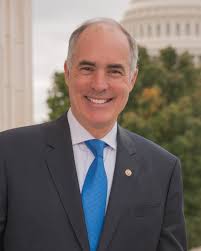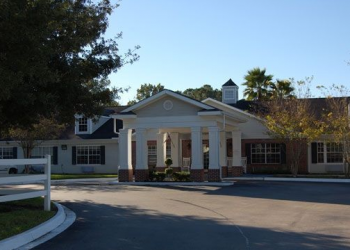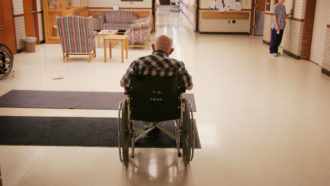A year ago, a resident of a Central Georgia nursing home climbed out of the window of her room and wandered off.
The staff at Pinehill Nursing Center in Byromville realized she was gone and launched a search. The woman had been reported to be delusional and refusing to take some of her prescribed medicine.
Thirty minutes later, two nursing aides spotted her on railroad tracks about a mile away. And they could hear a train approaching.

The patient was rescued before the train got there, but it was a very close call. “If it had been another minute, the resident would have been hit by the train,’’ a nursing aide told investigators.
The railroad near-accident was cited in a U.S. Senate report on nursing home care unveiled Monday. The Senate report showed that Pinehill Nursing Center is among the 88 nursing homes nationally under the “Special Focus Facility’’ (SFF) program.
The patient’s act of fleeing the facility, known in medical industry terminology as an “elopement,” wasn’t the only problem cited by regulators in a December inspection report at Pinehill.
The federal Centers for Medicare & Medicaid Services inspection report detailed a September sexual assault by a male patient who had severe cognitive impairment against a female patient who was also described as severely cognitively impaired and as nonverbal. “She is unable to make decisions about sexual participation,’’ the inspection report said, citing a medical staff member.
Pinehill did not immediately take steps to prevent female patients from suffering such assaults, the CMS report said. The alleged assailant was transferred to a mental health facility but later returned to Pinehill.
Conditions in the facility were a problem as well. There was a “strong odor of urine that permeated throughout the building,’’ according to the December inspection report. Bathroom floors were soaked with urine, and in places, the vinyl had bubbled up.
Nursing aides reported they lacked training in key aspects of patient care.

And in their December report, the inspectors said 27 residents of the 102-bed Pinehill facility were found to be at potential risk of becoming involved in sexual behavior or being targets of sexual abuse, and 32 were found to be potentially at risk for elopement, wandering or increased agitation.
Facilities in the SFF program “substantially fail” to meet the required care standards and resident protections afforded by the Medicare and Medicaid programs, said the U.S. Senate report, released this past Monday.
But the Senate report also noted that of the nation’s more than 15,700 nursing homes, less than 0.6 percent (a maximum of 88 facilities) are selected for the SFF program, which requires that they receive more frequent inspections and heightened monitoring.
About 400 more nursing homes technically qualify for SFF status because they are identified as having a “persistent record of poor care,” but they are not in the program and not getting the extra scrutiny because of limited resources at CMS, the Senate report said. Before Monday, those “candidates’’ were not publicly disclosed.
“As a result, individuals and families making decisions about nursing home care for themselves or for a loved one are unlikely to be aware of these candidates,’’ the Senate report said.

Pennsylvania’s U.S. senators, Democrat Robert Casey and Republican Pat Toomey, released the list of “candidate’’ facilities in the report Monday.

The two “believe that the list of SFF candidates is information that must be publicly available to individuals and families seeking nursing care for their loved ones,’’ the report said. Their goal, it said, is to provide families “with the transparency and information they deserve when choosing a home in which to entrust the care of a loved one.’’
Nine Georgia nursing homes are on the list as “candidates’’ for SFF status.
They are: East Lake Arbor in Decatur; Pleasant View Nursing Center in Metter; Westminster Commons in Atlanta; Brentwood Health and Rehabilitation in Waynesboro; PruittHealth in Blue Ridge: Northeast Atlanta Health and Rehabilitation; LaGrange Health and Rehab; Windermere Health and Rehabilitation Center in Augusta; and Clinch Healthcare Center in Homerville.
Kathy Floyd, executive director of the Georgia Council on Aging, said Friday, “thee facilities on the larger list have a ‘persistent record of poor care’ and should be publicized. More transparency for consumers is rarely a bad idea.’’
Feds blame budget restraints
The federal report said Pinehill Nursing Center was twice placed on “Immediate Jeopardy’’ status in December. That means that regulators perceive that the health and safety of patients are at risk of serious harm. Immediate jeopardy also conveys a warning to a facility of a potential cutoff of Medicare and Medicaid reimbursement unless the problems cited are resolved. Officials with Pinehill said Friday that its jeopardy status was later lifted.
Pinehill Nursing Center is owned by a private company and managed by Beacon Health Management, which manages 16 other facilities in Georgia.
Tammy Royal, senior vice president for operations at Beacon, told GHN on Friday that her company took over the management of many troubled nursing homes in 2016.
She said care at Pinehill has improved. Almost all department managers have been replaced, and Pinehill has a new administrator. The Byromville facility now “is in full compliance’’ with the state, Royal said.
Royal declined to comment on the sexual assault and railroad incidents.

“We realize we’re on Special Focus Facility [status],’’ she said. “We see it as an opportunity for improvement. We’re going to continue to succeed and meet the needs of residents at all our centers.’’
Royal said two other Beacon-managed facilities, Pleasant View and Clinch Healthcare, are listed as SFF candidates, but that the former has passed the inspection protocol.
About 1.3 million Americans are nursing home residents.
Budget cuts appear to be contributing to the problem by reducing money available for the focused inspections, the Associated Press reported.
CMS Administrator Seema Verma, in a May letter to Sen. Casey, said the total number of Special Focus Facility slots and candidates nationally “are based on the availability of federal resources.’’

Verma’s letter pointed to sequestration, a system of automatic budget cuts imposed in 2013 at the federal level. She said that in 2010, there were 167 SFF slots and 835 candidates for the SFF program. “In 2014, federal budget reductions, as part of sequestration, led to a reduction in the number of slots nationally to 88, and the candidates were reduced to 440,’’ her letter continued. “The number of slots and fàcilities on the candidate list has remained unchanged since 2014, with sequestration still in place.’’
She added that consumers and other stakeholders can learn about quality-of-care issues in nursing homes by viewing the Nursing Home Compare website, which lists survey results and rates the comparative quality of facilities through a system of 0 to 5 stars.
“In addition to survey oversight, CMS has made great strides to improve the accuracy of data on Nursing Home Compare, including moving to new, more reliable sources for obtaining staffing and resident census data, as well as including more claims-based quality measures.’’
An article by McKnight’s Long-Term Care News said Casey and Toomey noted that the star rating system and the Nursing Home Compare website don’t clearly reveal which facilities are in SFF — and don’t identify candidate facilities at all — and they said the star ratings don’t necessarily align with overall performance.
The criticism follows a report from the Center for Medicare Advocacy that criticized Nursing Home Compare for leaving some information about civil financial penalties off of its public site, McKnight’s reported.

The Georgia Health Care Association (GHCA), a trade group representing nursing homes, said it supports “making relevant, transparent information available to families and consumers so they can make informed care decisions for their loved ones. As always, we are dedicated to supporting our members in their efforts to make quality improvements and have been in contact with the centers listed in the report.’’
The potential Special Focus Facilities (SFF) listed in the report represent less than 2.5 percent of long-term care centers in Georgia, which is below the national average, said Devon Barill of the Health Care Association.
One factor that may lower the scores of some facilities is the measurement of staffing levels, she said. Georgia nursing homes “are challenged to meet staffing requirements due to a general shortage of direct care workforce, which is in great part correlated to inadequate Medicaid funding.’’
GHCA, she said, recommends that families take the following steps in choosing a nursing home:
- Consumers should review information about survey/inspection results, staffing levels and clinical outcomes. All of this information is available through the CMS Nursing Home Compare website.
- It’s critical to visit the center in person at a few different times of day.
- Talk with other people or families who know residents in the center.
- Understand what type of residents and conditions the center specializes in, so you can be sure it’s the right fit for your needs.
- Learn about the physician services and other available services, such as transportation back and forth to the hospital for someone who needs radiation or chemotherapy.
- Understand the survey process – it is a snapshot of a particular time or situation and may not reflect the most comprehensive picture of the care that is currently being provided.
The Thanks Mom and Dad Fund helps support our coverage of aging issues.

